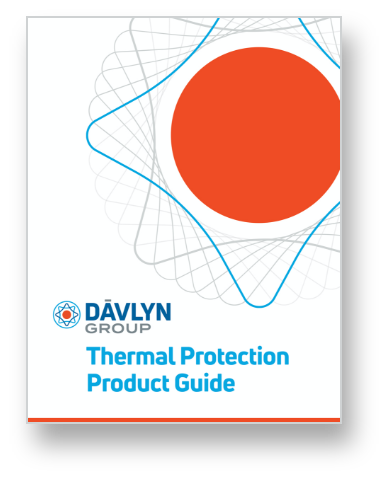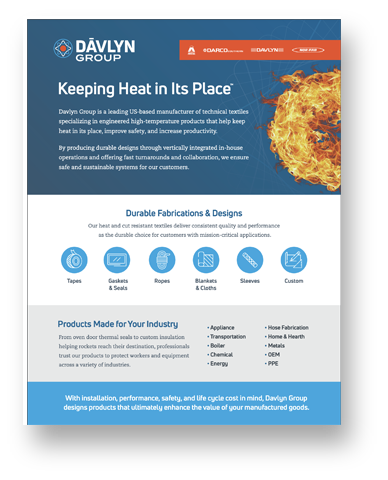Industrial fabrics, often called technical textiles or industrial textiles, are any fabrics designed for a non-decorative purpose. Their performance drives their conceptual design, often specially fabricated with physical properties in mind. Technical textiles are often made to be antibacterial, anti-static, chemical resistant, flame retardant, odor absorbent, UV resistant, or insect-repelling—sometimes a combination of these elements.
Under the umbrella term “technical textiles” falls industrial fabrics, which true to their name serve many purposes in industrial applications. These fabrics may require the incorporation of a range of physical characteristics into their design to meet the needs of many potential use cases.
How Fabrics Get Finished
When you picture traditional consumer fabric goods, it can be hard to imagine giving a fabric the qualities of a treated technical textile. The way fabrics are often prepared for treatment is by exposing them to an oxygen-rich flame. The high temperatures of the flame treatment can burn off dust, fibers, and any residual organic matter, which effectively cleans and prepares the surface for coating. By oxidizing the surface, the fabric can have a stronger chemical interaction with the coating.
At Davlyn, we specialize in industrial textiles that can withstand heat and its associated factors. Here are some of the coatings we can add to our technical textiles during the fabric-finishing process.
Flame Retardant
Often a requirement for personal protective equipment (PPE) in both the automotive and aviation industries, our fire-retardant finishes are a must for firefighter uniforms, certain automobile fabrics, and many aircraft fabrics including dividers and seat pockets. The flame-retardant finish protects the fabric from burning when it’s exposed to high temperatures or flames.
Heat Shielding
Similar to fire retardants, heat shielding finishes are used for the distinct purpose of PPE in metal casting, smelting, glass forming, and other similar industrial applications. The finish is an aluminized film created under high vacuum conditions, which uses our proprietary adhesives to create a bond with the surface of the fabric. This results in radiant heat protection for the wearer.
Coating Compounds
Technical textiles can be treated with glazes and coatings to improve performance. Common coatings include compounds like silicone, acrylic, PVC, vermiculite, and water repellents. These coatings can change a fabric’s appearance and physical characteristics, adding utility in the form of UV resistance, moisture control, flame retardance, and more.
In the world of fabric finishes, there are myriad options, and the selections chosen can significantly alter the user’s safety. When a person is wearing a technical textile as PPE, the coating on that fabric is everything standing between them and the danger of heat and flames. Knowing how fabric finishes work and what options exist—for serious things like first responders’ PPE and simpler considerations like odor and static resistance—can make all the difference.
It can be hard to know if you’re making the right choice with all the fabric coatings out there, but the Davlyn Group can help. Reach out to us today to view all our fabric and textile industrial finish options and discuss your specific needs.



